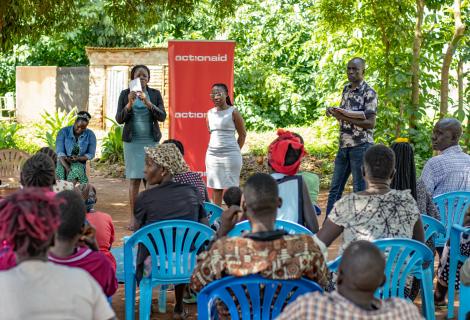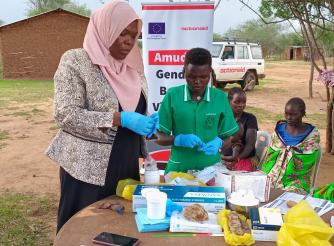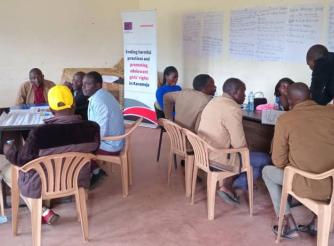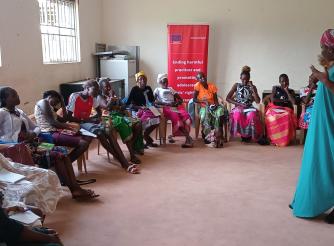Mach Lyel Loka’ and the Quiet Violence of Stigma

Between April 2025 and to date, ActionAid International Uganda, with funding support from ActionAid UK under the African Women Voices for Peace project, undertook a series of community awareness activities on Gender-Based Violence (GBV) across the districts of Gulu, Amuru, and Kitgum. These were not just awareness sessions; they were urgent interventions in communities still navigating the complex aftermath of conflict, poverty, and deeply entrenched patriarchy.
Despite decades of recovery efforts, GBV remains pervasive in Northern Uganda. It thrives on the back of negative cultural practices, widespread poverty, gender inequality, and social stigma. From child marriage to domestic abuse, the violence women face is often normalized and, in many cases, invisibilized.
In every community visited, these issues came to life through the stories of those who lived them. In one session, a woman’s words laid bare the quiet cruelty embedded in local belief systems:
“They call us ‘Mach lyel loka.’ It means ‘let the fire burn from another direction.’ That’s what they say about us-women who leave abusive marriages and return to our family homes. We are told not to expect love, support, or even a piece of land. We are told to go and suffer elsewhere.”
This single phrase-Mach lyel loka-captures the lived reality of countless women: blamed for the violence they escape, stripped of dignity, and denied safety even within their own families. It underscores the urgent need to challenge the cultural norms that enable GBV and silence survivors.
The awareness sessions revealed a worrying gap in knowledge about GBV, the referral pathways available to survivors, and the responsibilities of duty bearers. Communities often conceal abuse due to fear of shame or retaliation. Health workers, in some cases, lack the training to identify or respond sensitively to GBV cases. The result is a cycle where survivors remain unheard, unhelped, and unseen.
ActionAid’s community-led approach emphasized the collective responsibility to break this cycle. The sessions engaged women, men, youth, and local leaders in honest conversations about how harmful cultural beliefs and silence perpetuate GBV. Participants were encouraged to:
- Report cases through the existing referral pathways and support systems.
- Reject the social norms that blame and isolate survivors.
- Demand regular capacity-building for health workers to ensure they are equipped to respond with compassion and professionalism.
Crucially, the dialogues also gave space for healing and solidarity. Survivors who had once suffered in silence found a platform to speak, be heard, and know they were not alone. These moments were more than symbolic; they were the seeds of transformation. But the road ahead is long.
Combating GBV in Northern Uganda requires more than awareness. It demands bold, sustained action. Communities must be empowered to speak out. Institutions must be held accountable. Survivors must be centered, not silenced. And the harmful adages like Mach lyel loka must be replaced with messages of dignity, equity, and shared humanity.
As ActionAid continues its work under the African Women Voices for Peace project, we call on local leaders, government actors, civil society, and citizens to stand united. Because a community that protects its women is a community that protects its future.


